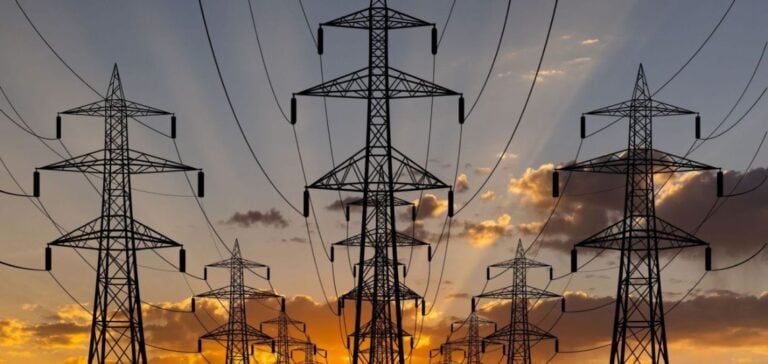France marked a historic turning point in its electricity production and exports in the first six months of 2024.
After two years of energy crisis, the country not only exceeded 2019 production levels, but also set new export records thanks to exceptionally high hydropower activity.
Higher Production Thanks to Dams
French electricity production reached 272 terawatt-hours (TWh) at mid-year 2024, the highest since 2019.
This performance was largely driven by hydroelectric production of 41 TWh, up 37% on 2023 and 13% on the average of the previous two decades.
Winter and spring precipitation were decisive in filling the dams and increasing their generating capacity.
At the same time, nuclear generation, which had been impacted in recent years by corrosion problems, showed signs of recovery, with output of 177 TWh, up 12% on the previous year.
However, this figure remains 14% below the 2000-2020 average.
The advance of renewable energies and the decline of fossil fuels
Renewable energies also progressed, with wind generation reaching 25.5 TWh and solar generation 11.4 TWh, up by 3% and 5% respectively.
By contrast, fossil-fired generation reached its lowest level since the 1950s, at just 11.5 TWh, a 54% reduction on the 2000-2020 average.
Coal-fired power plants have only operated for around one hundred hours since the beginning of the year.
Decarbonized Electricity and Power Security
Thomas Veyrenc, RTE’s Managing Director for Economy and Strategy, emphasized that 96% of French electricity production was decarbonized in the first half of the year, an exceptional performance.
This progress is part of a trend to reduce electricity consumption in France, which began in the late 2010s and was accentuated by the crises of 2020 and 2022.
Despite initiatives to increase electrification, electricity consumption remains below pre-2022 energy crisis levels, guaranteeing security of supply with no risk of summer blackouts, and very low greenhouse gas emissions.
Record exports and positive trade balance
France also broke its record for net electricity exports to neighboring countries, reaching 42 TWh net in the first half of the year, compared with 13 TWh for the same period last year.
If this trend continues, the annual record of 77 TWh, set in 2002, could be surpassed.
These exports bolster France’s trade balance and illustrate the complementary nature of the nuclear and renewable energy sectors.
By 2022, France had become a net importer of electricity for the first time since 1980, mainly due to the partial unavailability of its nuclear fleet.
However, the upturn in production in 2023 enabled us to re-establish a net export balance, which was consolidated during the year.
With record exports to Germany and Belgium, France also adjusted its balance with Spain in line with wholesale market price variations, posting a net import from January to April, followed by a net export in May and June.
This dynamic underlines the robustness of the French power system, capable of meeting energy challenges while moving towards decarbonized, sustainable electricity.






















